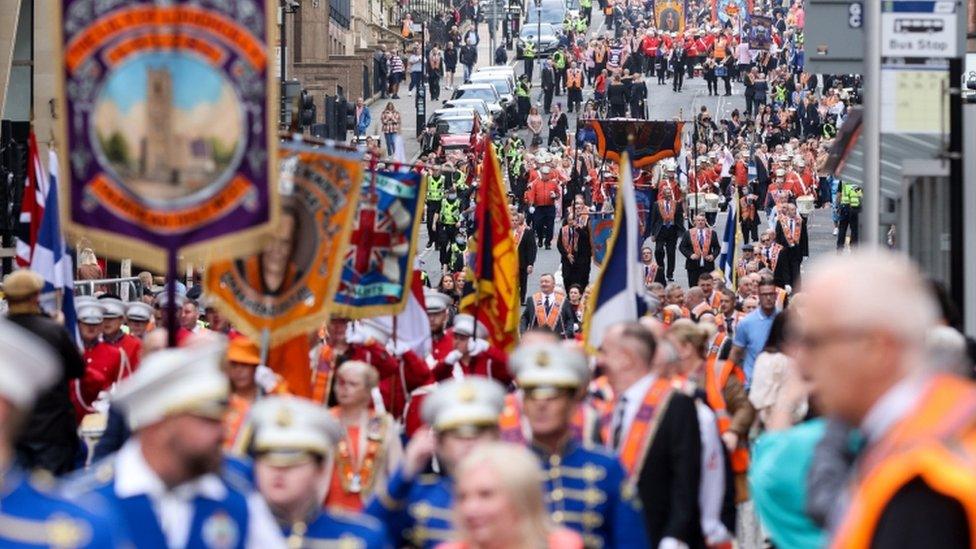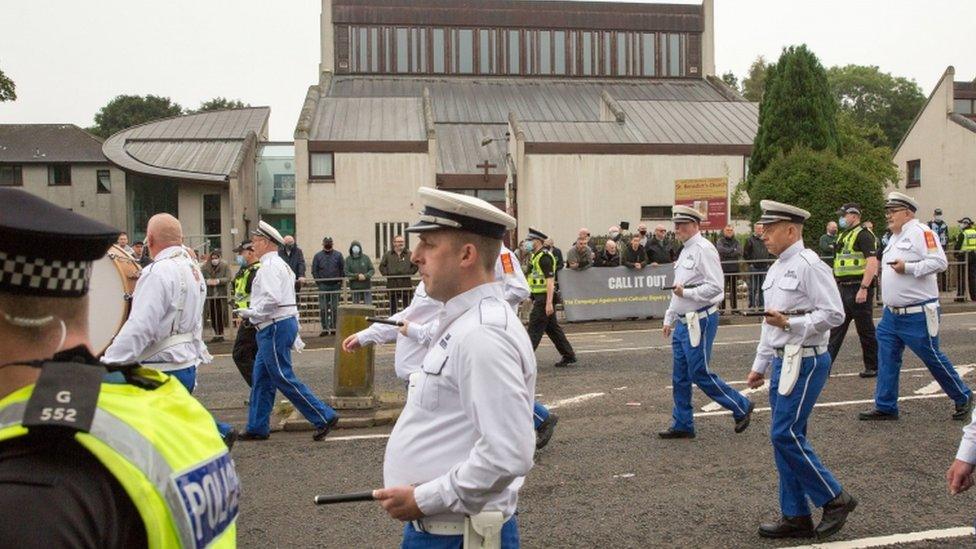Scotland considers setting up parades commission
- Published

The Scottish government is considering setting up a parades commission similar to the one in Northern Ireland.
The announcement came in the wake of police making several arrests at a series of Orange Walks in Glasgow at the weekend.
First Minister Nicola Sturgeon said she had asked the justice secretary to examine what action could be taken to prevent similar disorder in the future.
She said this would include considering whether a commission is needed.
The independent parades commission in Northern Ireland, external was set up in 1998, and has the power to place restrictions on public processions and related protest meetings.
Ms Sturgeon was responding to a question at Holyrood from SNP MSP James Dornan, who highlighted concerns that some of the weekend's Orange Walks had passed by Catholic churches.
Police made a total of 14 arrests amid reports of anti-social behaviour including sectarian and racist singing.
Ms Sturgeon said the government would give "further consideration" to whether a commission should be established.
She added: "I have already asked the justice secretary to consider what further action could be taken to maintain the important balance of rights between peaceful procession, freedom of speech, but also the ability of people to go about their daily lives without feeling unsafe and being free from harassment.
"I will ask the justice secretary to consider the possible creation of a parades commission as part of that.
"I know that members will join me unequivocally at condemning all instances of anti-Catholic bigotry which we have seen on our streets in recent times."

Some of the parades passed by Catholic churches
The Orange Order, which organised the walks at the weekend, has said there have been parades in Glasgow for 200 years with "very, very little trouble".
It has also insisted the organisation is not anti-Catholic.
About 5,000 people were said to have taken part in the marches, with police saying there had been "outbreaks of racist and sectarian singing" among some of those who attended.
The force said most of the 14 arrests made by its officers were for public disorder and anti-social behaviour, but also included sectarian-related breach of the peace.
The marches had been postponed from 12 July because of Covid restrictions.